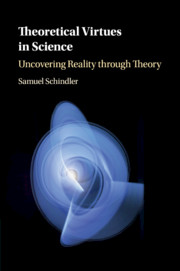Book contents
- Theoretical Virtues in Science
- Theoretical Virtues in Science
- Copyright page
- Dedication
- Contents
- Figures
- Acknowledgements
- Introduction
- Chapter 1 Theoretical Virtues, Truth and the Argument from Simplicity
- Chapter 2 Pessimism, Base Rates and the No-Virtue-Coincidence Argument
- Chapter 3 Novel Success and Predictivism
- Chapter 4 Theoretical Fertility without Novel Success
- Chapter 5 Ad Hoc Hypotheses and the Argument from Coherence
- Chapter 6 Virtues as Confidence Boosters and the Argument from Choice
- Chapter 7 Philosophy of Science by Historical Means
- Conclusion
- Epilogue: The Demarcation Problem
- Bibliography
- Index
Conclusion
Published online by Cambridge University Press: 14 May 2018
- Theoretical Virtues in Science
- Theoretical Virtues in Science
- Copyright page
- Dedication
- Contents
- Figures
- Acknowledgements
- Introduction
- Chapter 1 Theoretical Virtues, Truth and the Argument from Simplicity
- Chapter 2 Pessimism, Base Rates and the No-Virtue-Coincidence Argument
- Chapter 3 Novel Success and Predictivism
- Chapter 4 Theoretical Fertility without Novel Success
- Chapter 5 Ad Hoc Hypotheses and the Argument from Coherence
- Chapter 6 Virtues as Confidence Boosters and the Argument from Choice
- Chapter 7 Philosophy of Science by Historical Means
- Conclusion
- Epilogue: The Demarcation Problem
- Bibliography
- Index
Summary
- Type
- Chapter
- Information
- Theoretical Virtues in ScienceUncovering Reality through Theory, pp. 210 - 214Publisher: Cambridge University PressPrint publication year: 2018



